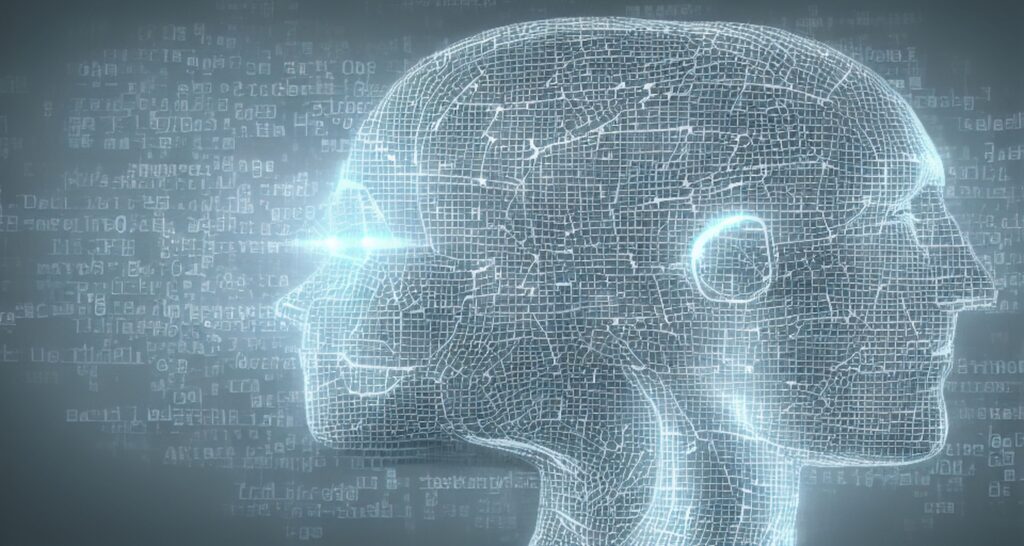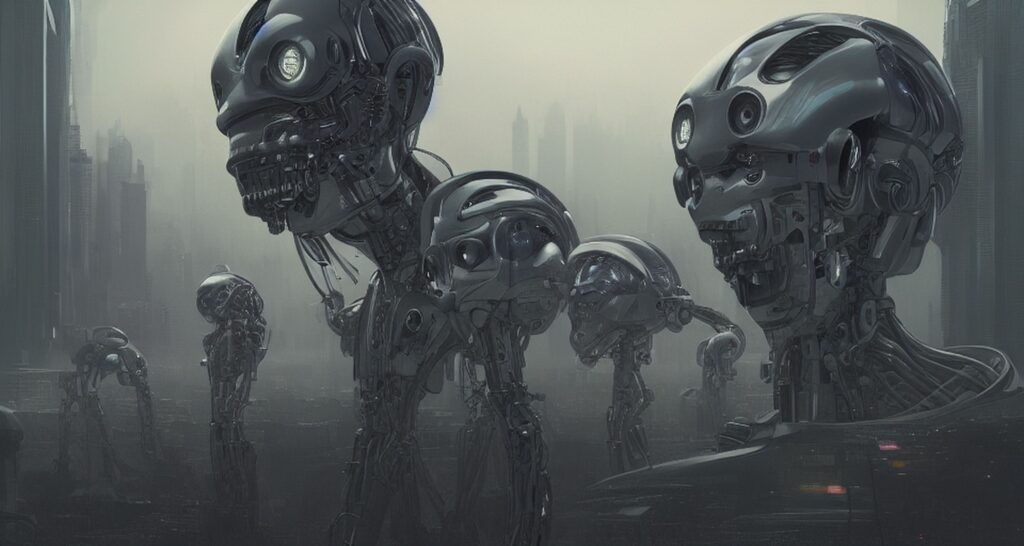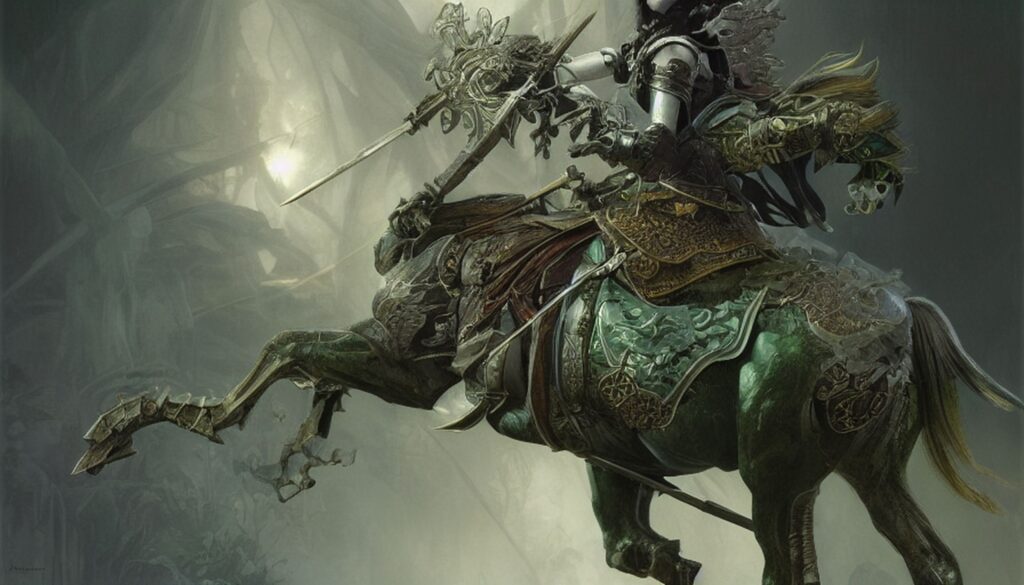
Singularity is the moment when technological innovation is so rapid and its impact so profound that it transforms our daily lives. It is a future where artificial intelligence surpasses human intelligence and productivity and innovation increase exponentially. Some experts believe we are fast approaching this tipping point and that it will have a dramatic impact on us all. Are you ready for the Singularity?
1. What is the Technological Singularity ?
The technological singularity, or “singularity” for short, envisions a point at which technology and humanity will merge, and was proposed by computer scientist Vernor Vinge in 1993, who stated that the development of artificial intelligence will eventually lead to an “intelligence explosion” and technological changes far beyond our current understanding. He stated that an “intelligence explosion” will occur. This idea has recently been revisited by writers such as Ray Kurzweil and Elon Musk, who argue that new technologies such as AI, advanced robotics, and nanotechnology will bring about major changes in society. Curiously, this moment is likely to see the emergence of an entirely new kind of machine-human hybrid with superintelligence and immortality. The combination of human creativity and technological breakthroughs could lead to scientific breakthroughs and radical leaps in industry and economics. However, the Singularity could bring about changes of a magnitude never before experienced, and it is impossible to accurately predict its outcome. A possible harbinger of this is the rise of 5G networks. With dramatically faster data transfer rates between devices, 5G networks could be a stepping stone to future technological innovations. No one knows what the post-singularity reality will be like, but one thing is certain: humanity’s fundamental thirst for change will remain intact.
2. What are your predictions for the future of technology and society due to Singularity?
With the advent of “Singularity,” the convergence of artificial intelligence and massive technological advances, humanity is entering an era unprecedented in its history. We can expect tremendous advances in areas such as medicine, biotechnology, transportation, engineering, and computing. Self-driving cars may soon be available to all, and virtual reality may provide us with inspiring entertainment experiences. We can also expect a more efficient society through more efficient use of energy and sustainable agriculture. Even more ambitious, we may be able to explore space and other worlds using self-replicating robots. Of course, all of these changes require careful consideration by governments and ethical organizations. After all, past experience has shown that technology tends to have unintended consequences, and vigilance is needed in its management. Fortunately for humanity, however, an exciting Singularity era is about to arrive. With big dreams unfolding, it will only be a matter of time before humanity reaches a higher level of innovation and prosperity. The possibilities this new era will bring are virtually endless. Only time will ultimately tell what the future holds for technology and society as a result of the Singularity, but wherever we are headed, one thing is certain: it will be a great adventure.
3. What are some of the concerns that have been raised about Singularity Theory ?
The Singularity Theory has been the subject of much debate in the scientific community. Some experts fear that the theory will eventually lead to a world where machines will be the ruling class and humans will lose their autonomy. Many opponents of the theory argue that its implementation could result in the loss of privacy and freedom from society. They are also concerned about the negative impact on the economy, saying that the loss of jobs due to automation could cause major social disruption. Some are also wary of unforeseen events, such as AI being weaponized or artificial intelligence coming to dominate humanity. In addition, there are concerns about the potential ethical dilemmas associated with assigning moral values to machines that have the potential to make life-altering decisions that affect society as a whole. Given these considerations, the Singularity Theory is certainly worth further study, deliberation, and evaluation before its introduction into our technologically advanced world.

4. Will the future come when machines no longer need humans?
Humanity is now at a unique crossroads, where technological advances and artificial intelligence have the potential to drastically change the way humans interact with machines. Already, robots are performing tasks in factories and businesses that were impossible just a few years ago. But with such advances comes the question of how far the technology will advance and what is the limit of human involvement in its operation. In the future, we may come to a world where machines do not need humans and perform all tasks automatically. At that time, machines will be more capable than current technology without the need for human intervention. Of course, the freedom from labor is superficially attractive, but it is important to recognize the economic impact of such a development and the psychological impact it will have on humanity. In other words, the quest for automation should not be undertaken lightly without recognizing both its positives and negatives. But one thing is certain: when such a future becomes a reality, we must be prepared for it.
5. How can we prepare for Singularity?
The term “singularity” has historically been used to refer to the moment when artificial intelligence exceeds human capabilities. This is a difficult challenge for humanity. How do we prepare for a world in which machines are smarter than we are? First, it is essential that we develop ethical guidelines surrounding the use of artificial intelligence (AI). We must ensure that AI technologies are used responsibly and ethically, with the ultimate goal of improving human lives. Furthermore, we must ensure that new AI developments are safe and properly monitored to minimize potential risks. Another important aspect of preparing for the Singularity is education. Both humans and machines must be trained to interact safely. For example, humans must be educated in digital safety, privacy laws, and robotics coding to understand how AI systems work. Meanwhile, machines must be taught moral and ethical principles so that they can continue to be trusted even after they have surpassed human capabilities. These steps will give humanity the confidence it needs to move forward into a world of ever-evolving technological progress.

Conclusion
While there is much speculation about what will happen when artificial intelligence surpasses human intelligence, the potential consequences of a technological singularity are enormous. Some experts believe that this event will usher in an era of unparalleled prosperity and progress, while others are concerned about the possibility that machines will lose control and eventually supplant humans entirely. Whether we will be able to prepare for and weather the changes brought about by the technological singularity remains to be seen. But one thing is certain: change will come, and all of us must pay attention.






